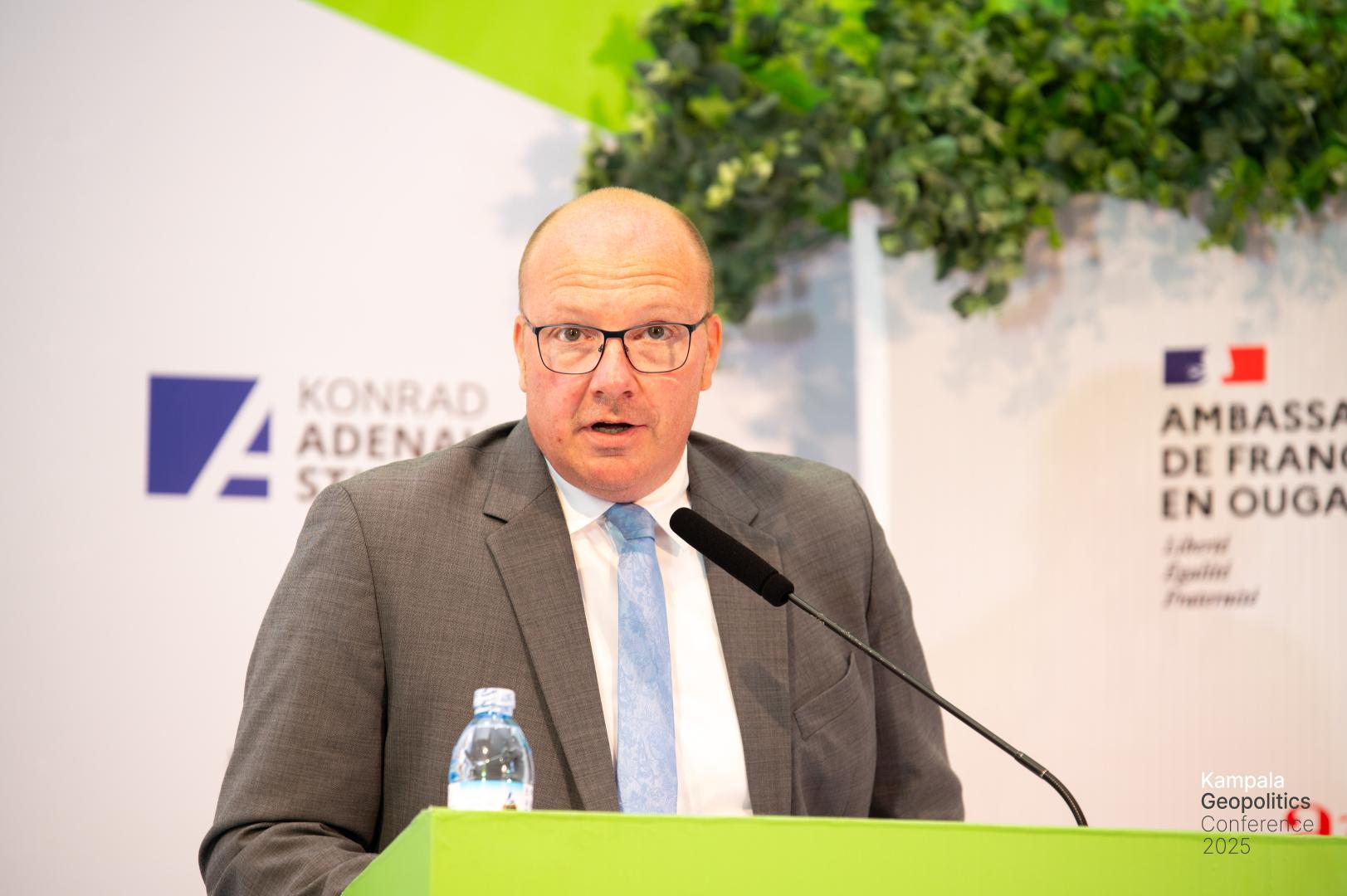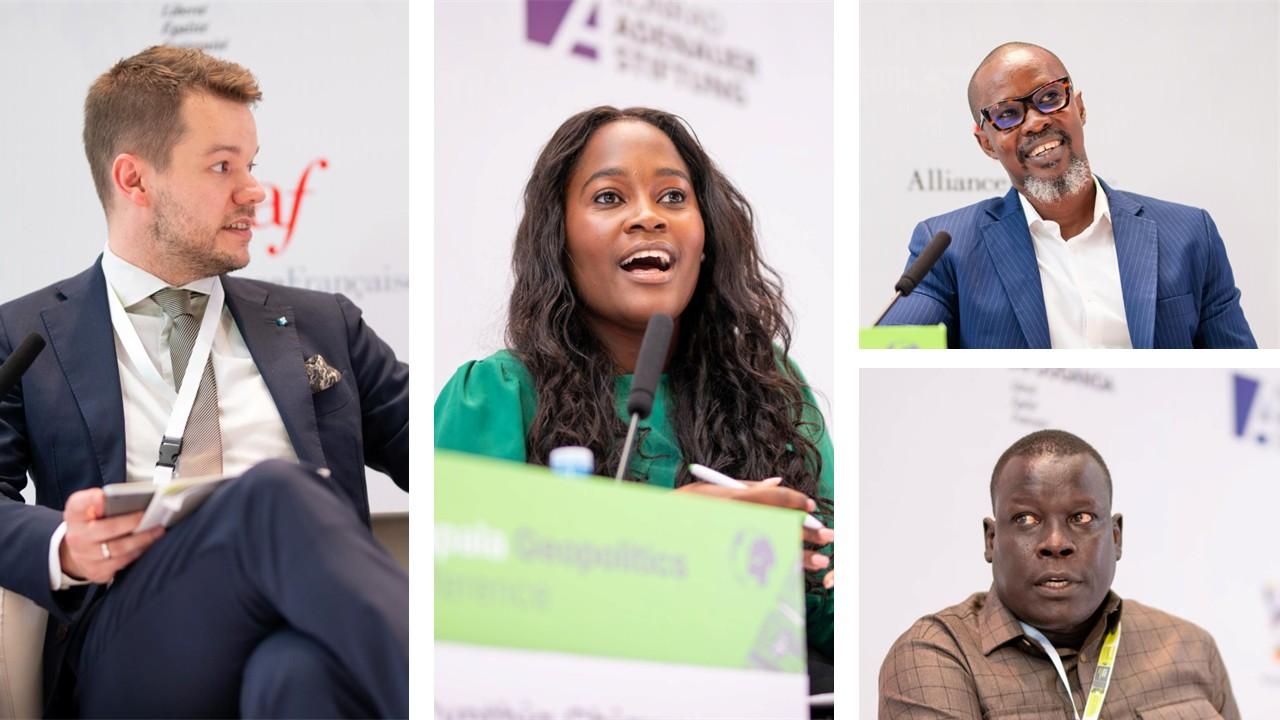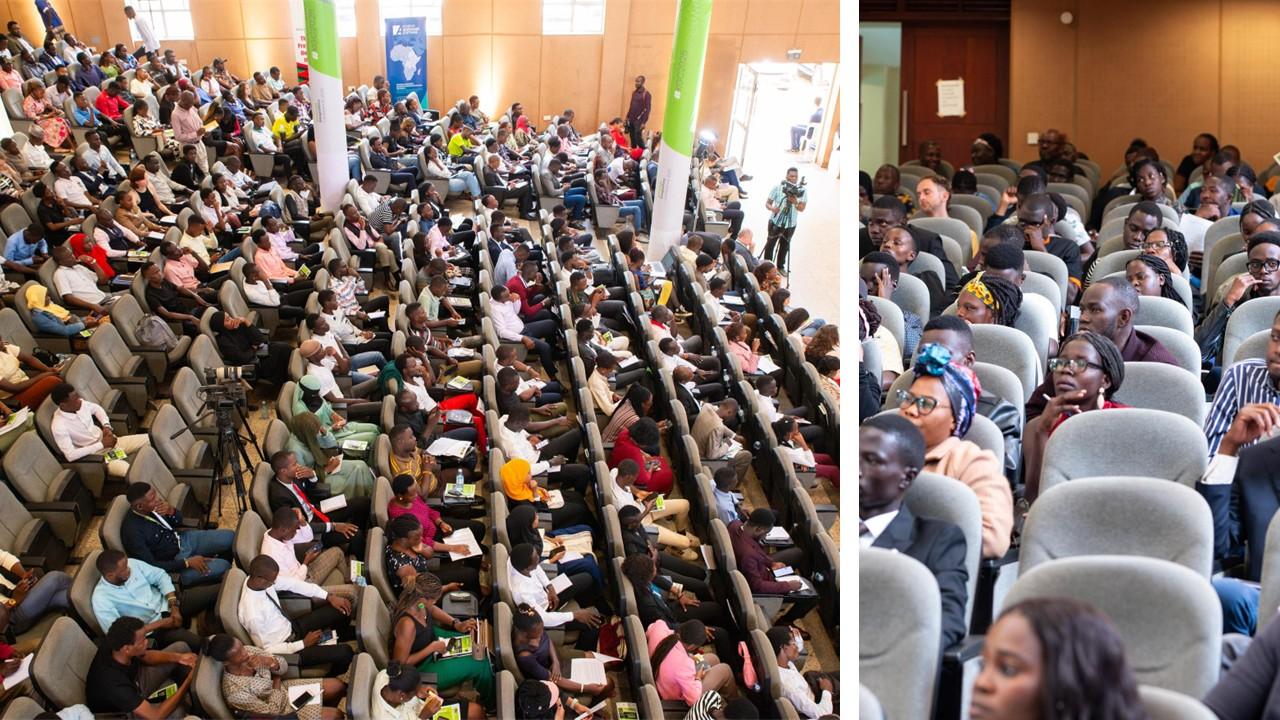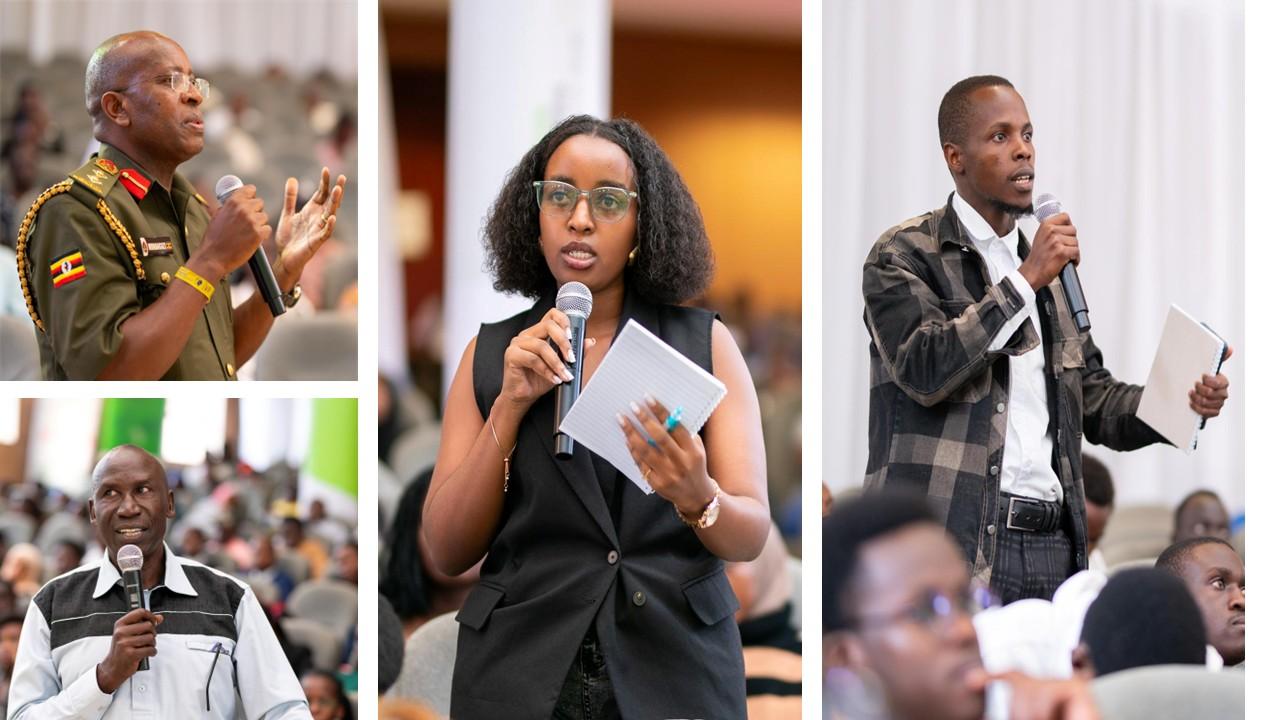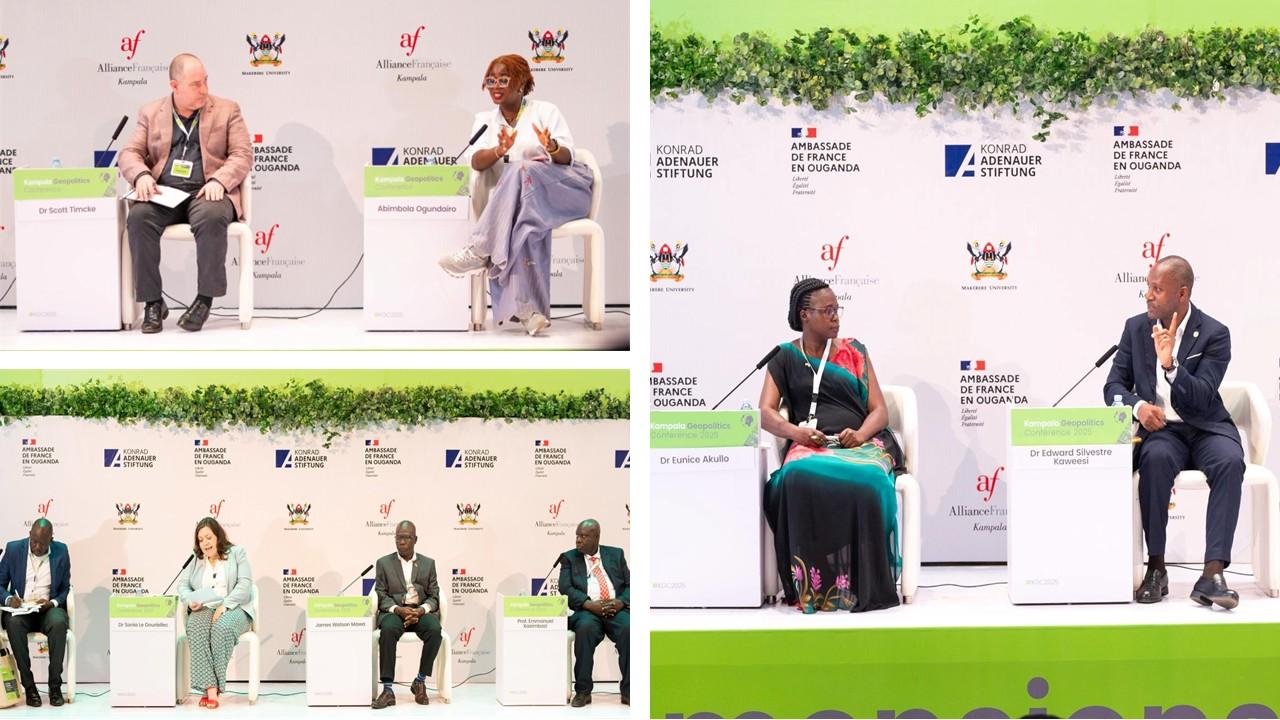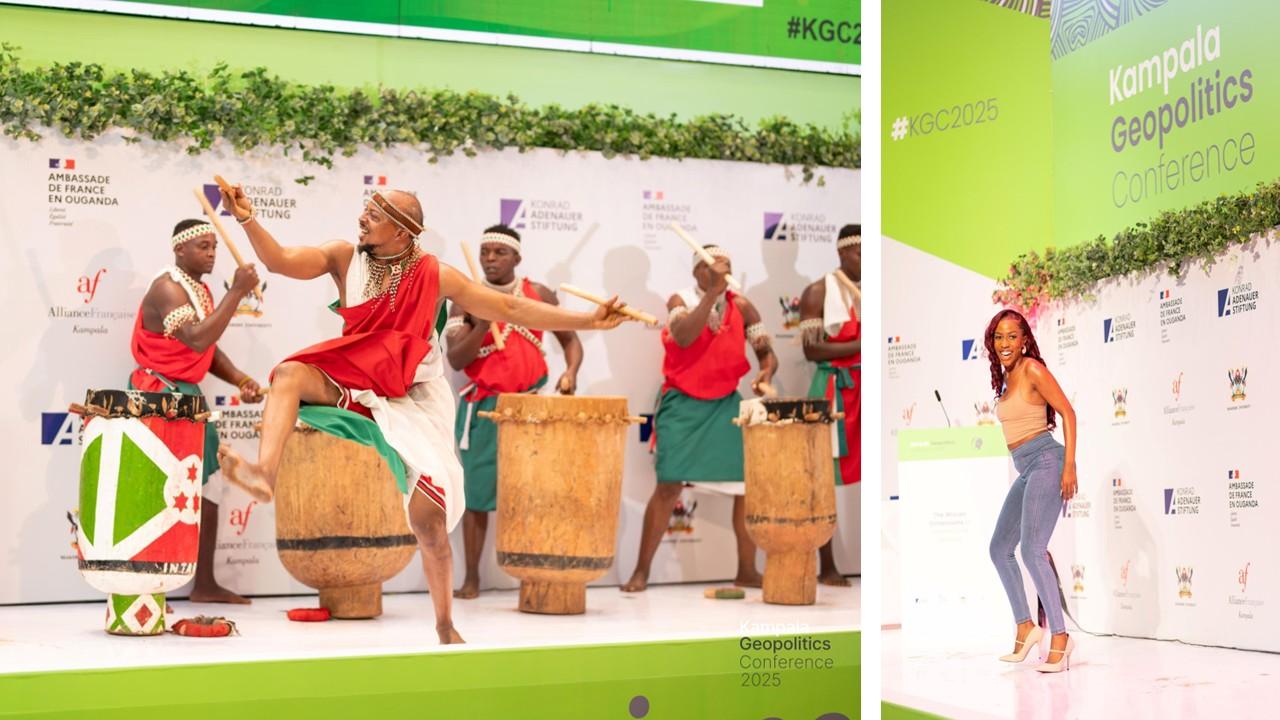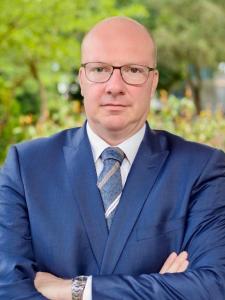The conference was opened by Dr Hellen Nambalirwa Nkabala, Principal, College of Humanities & Social Sciences, Makerere University, on behalf of Prof. Barnabas Nawangwe, Vice-Chancellor of Makerere University. In her remarks, she expressed gratitude and honour for the opportunity afforded to Makerere University to, once again, host this event. H.E. Xavier Sticker, Ambassador of France to Uganda, emphasised the strong partnership between the co-organisers of the conference and expressed his commitment to the event. Nils Wörmer, Director of KAS RP SIPODI East Africa, highlighted the impact of the evolving international situation and the strained security environment in Europe. He also underscored the relevance of African states as enduring partners of Germany and Europe in international and security affairs. Eric Touzé, Director of Alliance Française de Kampala, noted that the KGC was not just an academic event but also an opportunity for cultural and social exchange.
The first KAS panel, moderated by Lukas Kupfernagel, Director of the KAS office for Ethiopia and the African Union, discussed “The UN Security Council Reform: The Rational for Africa´s Quest for a Permanent Seat.” The panellists contended that it justified both in the moral and ideological sense to designate permanent seats for Africa at the UN Security Council. Cynthia Chigwenya, Youth Advisory Council at the Roméo Dallaire Institute for Child, Peace, and Security, emphasised the importance of African representation, reiterating the principle that “anything for us without us is against us.” Whereas he agreed with this position, Ambassador Angok James Solomon, Professor of Political Science at the University of Juba, highlighted the key limitations to Africa’s quest, including incoherences in approaches by different African countries, resources and capacity limitations, and the unwillingness by the P5, to reform the Council. However, Angelo Izama, Private Analyst and Journalist, questioned whether such representation truly benefits the continent. He argued that without genuine autonomy over its own affairs—and given the UN's declining global influence—the value of a permanent seat remains debatable.
The second KAS panel, titled “Future of Peacekeeping in Africa: Comparative Analyses of DRC, Somalia, and the Lake Chad Basin,” was moderated by Jan-Ole Voß, Deputy Head of Office, KAS Kenya. Panellists offered insights into peacekeeping operations across the continent, highlighting lessons learned from differing models of the ongoing missions. Emolot Allan David, Chairperson of the Independent Continental Youth Advisory Council of the African Continental Free Trade Area (AfCFTA), discussed the merits and challenges of the UN-led mission in the DRC (MONUSCO). Olutoyin Falade, Peace Fellow at the Rotary Peace Centre in Nigeria, examined the regional approach of the Multinational Joint Task Force in the Lake Chad Basin, while Omar Abdikadir, Senior Policy Advisor to Somalia’s Office of National Security, reflected on the hybrid peacekeeping model in Somalia (mandated by the UN Security Council, implemented by the African Union, funded by the EU, and executed by regional troop-contributing countries). Drawing from the three case studies, the panellists emphasised the need for peacekeeping missions to secure regional, and local legitimacy, be grounded in sustainable and predictable financing, and include a clear transition strategy. They also stressed that mission mandates must go beyond military objectives but also be strengthened by credible political processes, incorporating local knowledge and the voices of women and youth.
Our partners, the Embassy of France in Uganda and Makerere University, Kampala set up the other panels that addressed the crisis in Eastern Congo, the relationship between AI, misinformation, and democracy in Africa, security on the high-seas and its impact on East Africa, and the impact of Trump’s “America First” approach on Africa. The high-level academic discussions in the panels and the subsequent audience engagements were complemented by a cultural performance organised by Alliance Française de Kampala, with performances by Umurisho Drummers from Burundi and Ugandan pop singer, Vinka. In his closing remarks, Prof. Buyinza Mukadasi, First Deputy Vice Chancellor of Makerere University, thanked the audience for their vibrant and passionate engagement in the debates and emphasised the important role of the younger generations in engaging in political and public discussions to shape their future. The two-days event was crowned by a high-level dinner organised by the Embassy of France in Uganda, hosted at the French residence and an experts’ dinner hosted at the office premises of the KAS RP SIPODI in Kololo.
About this series
The Konrad-Adenauer-Stiftung, its educational institutions, centres and foreign offices, offer several thousand events on various subjects each year. We provide up to date and exclusive reports on selected conferences, events and symposia at www.kas.de. In addition to a summary of the contents, you can also find additional material such as pictures, speeches, videos or audio clips.

